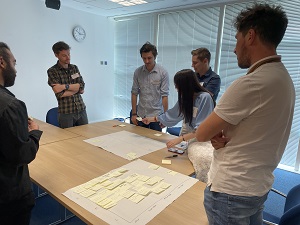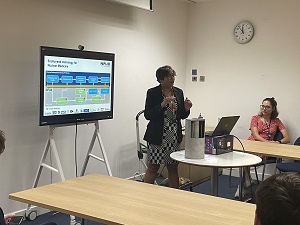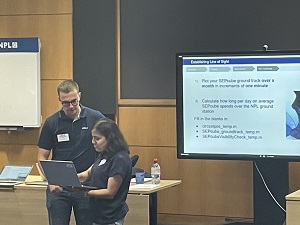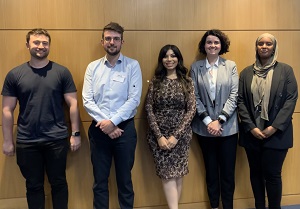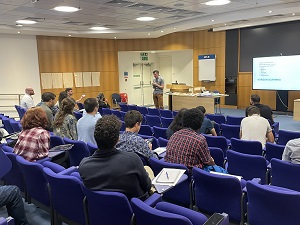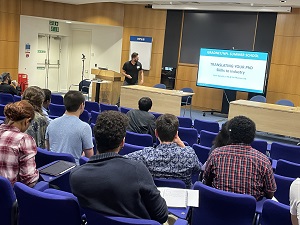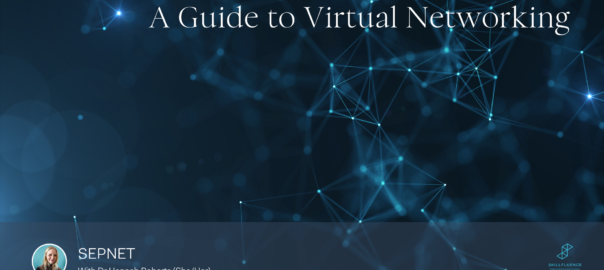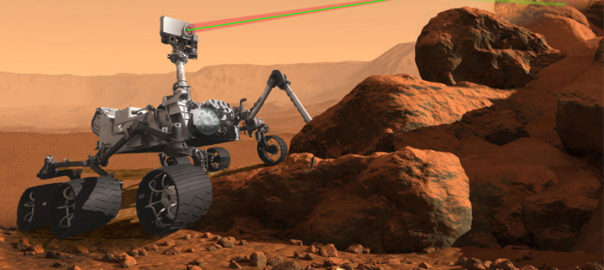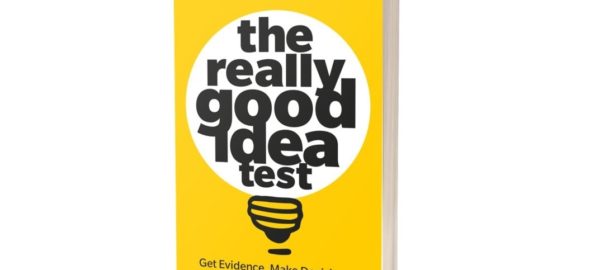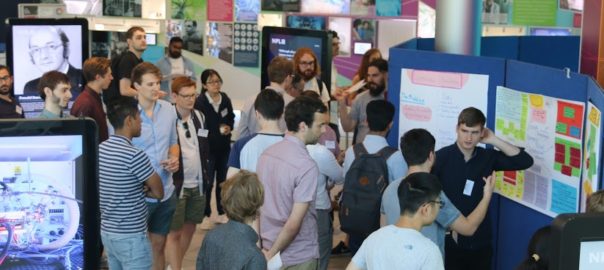GRADnet is pleased to announce the list of forthcoming GRADnet Training events for the academic year 2021-22. Due to the COVID-19 pandemic this list is subject to change.
These events are only for SEPnet postgraduate and postdoctoral researchers. These events are free to attend (SEPnet pays for your accommodation and course fees for residential courses) and travel expenses can be claimed from your department.
List of training events:
20 October 2021: Online Live GRADnet Induction Day for 1st Year Physics PhD students (via Microsoft Teams). This is compulsory for all September/October 2021 starters. Register here by 18 October 2021.
27 October 2021: IOP/SEPnet Webinar: “Taking control of your career as a woman in physics”. The Institute of Physics and SEPnet are holding an online careers webinar for women and non-binary physics students (i.e. undergraduate, postgraduate and postgraduate research), as well as recent physics graduates working in a range of employment sectors. Our half-day panel and networking event will give you a chance to find out the variety of career options available to physicists. You will hear from a diverse range of women in physics-related careers who will talk about their roles and how they got to where they are. They will provide practical advice and information about the skills and experience you need to progress in your career. This event is open to IOP members and non-members. Register here by 26 October.
10 November 2021: Developing knowledge and skills in Public Engagement Webinar Session 1*. This is a two-part Public Engagement series designed to give you an overview of the engagement landscape, and practical guidance as to how to create engagement around your own research.
Session 1: will explore what public engagement is, delving into the research and literature around it, unpicking why we do engagement, and looking at how to create impact from engagement. This will be led by SEPnet Outreach and Public Engagement officers with many years’ experience in this field.
Session 2 (see 23 March registration link below): will be in the format of a workshop and will allow attendees space to discuss their own research and form ideas for engagement. SEPnet Outreach and Public Engagement officers will lead and facilitate this session, using their experience and working with attendees to create impactful engagement plans. There will also be guidance on how to evaluate and evidence engagement, which is particularly important in the context of REF.
We strongly encourage interested postgraduate and postdoctoral researchers to attend both sessions. For other staff members interested in finding out more about the engagement landscape please do register to attend the first session. Register here by 8 November.
24 November 2021: IOP Publishing Webinar “How to get published”: IOP Publishing is one of the world’s foremost publishers within the physical sciences, with over 80 titles covering all aspects of physics. For early career scientists starting out in research, the world of academic publishing can be somewhat confusing. In this webinar we aim to shed some light on this process and enable you to navigate it to maximise the impact and visibility your research. This talk will cover topics such as open access, choosing the correct journal for your work, the peer-review process, and promoting your research. More information can be found on the IOP Publishing Support site at https://publishingsupport.iopscience.iop.org/. Register here by 23 November.
12 January 2022: Machine Learning & AI at Queen Mary University of London, Mile End Road, London. Registration link tbc
14-15 February 2022: GRADnet Winter School at Cumberland Lodge, Great Park, Windsor. Register here by 14 January 2022.
23 March 2022 Developing knowledge and skills in Public Engagement Workshop Session 2*. For details of session 1 & 2 see 10 November 2021 above. Register here by 21 March.
28 March 2022: Advanced Materials at Royal Holloway University of London, Egham, Surrey. Registration link tbc
Astrobiology/Planetary Science at the Open University, Milton Keynes, Bucks, TBC
10 & 17 May 2022: A Guide to Virtual Networking online workshop. Register here by 6 May 2022.
4-5 July 2022: GRADnet Summer School at the National Physical Laboratory, Teddington, Middlesex. Registration link tbc
June/July 2022: XII NExT School TBC
5-7 September 2022: Student-led Conferences at the University of Southampton. Registration link tbc
Please note that due to the COVID-19 pandemic the delivery of some events may switch to online via Zoom or Microsoft Teams.
For regular updates visit: GRADnet Training Events for 2021-22 – SEPnet
